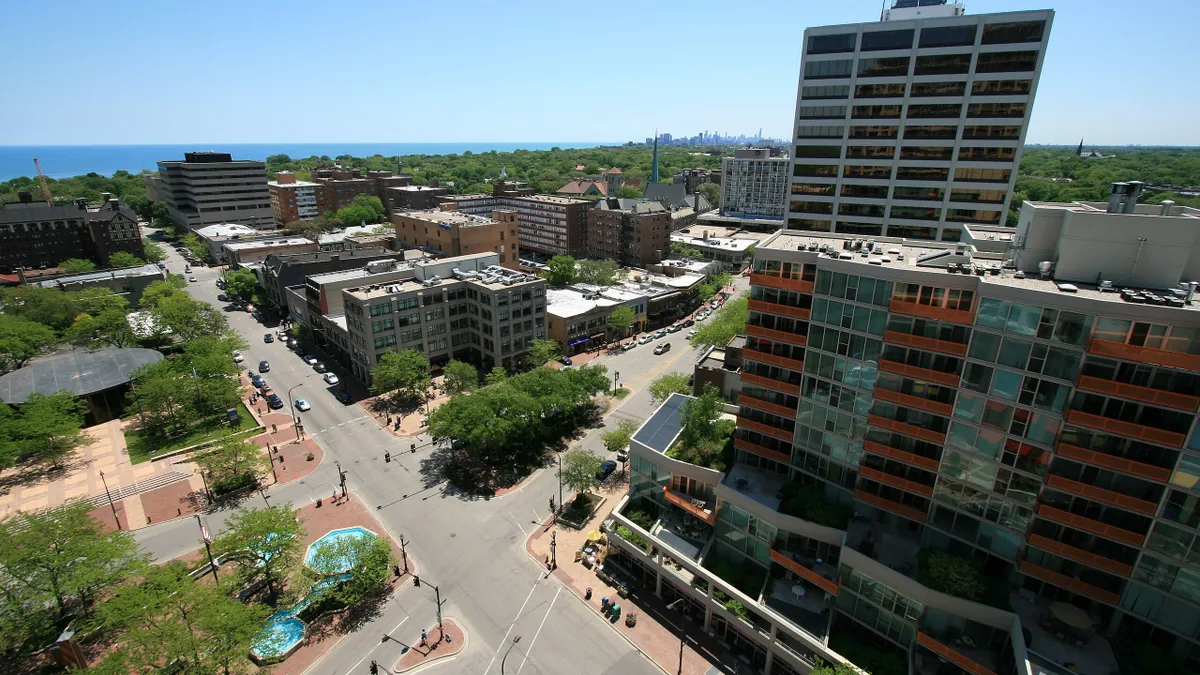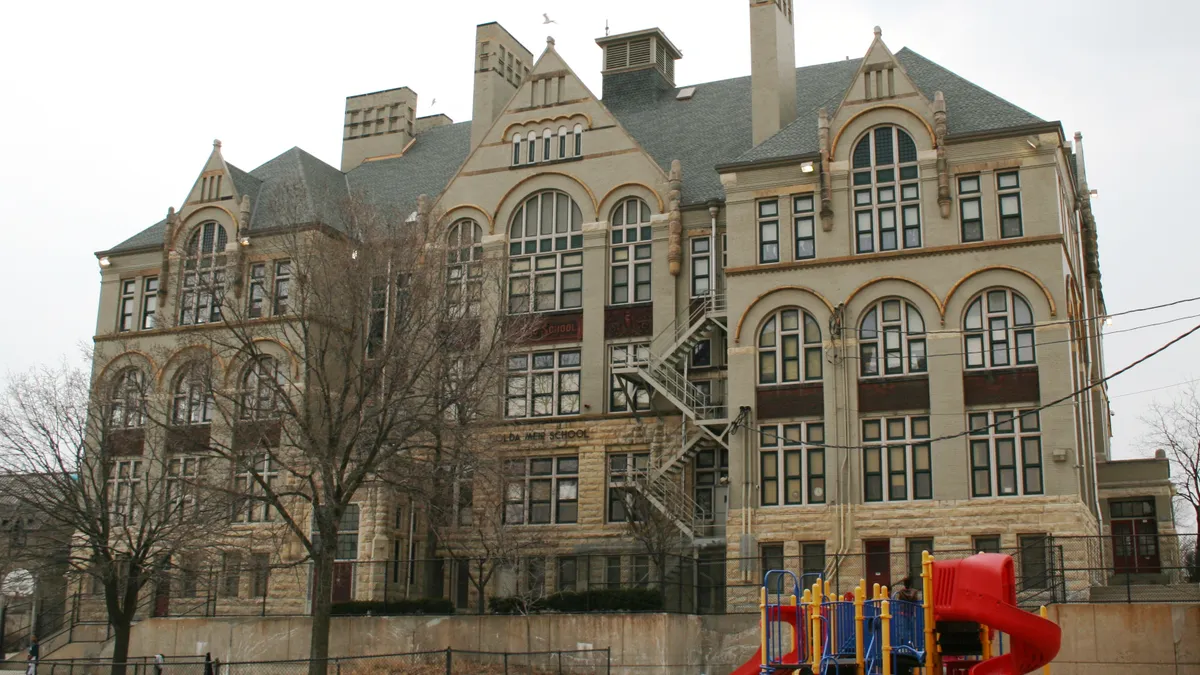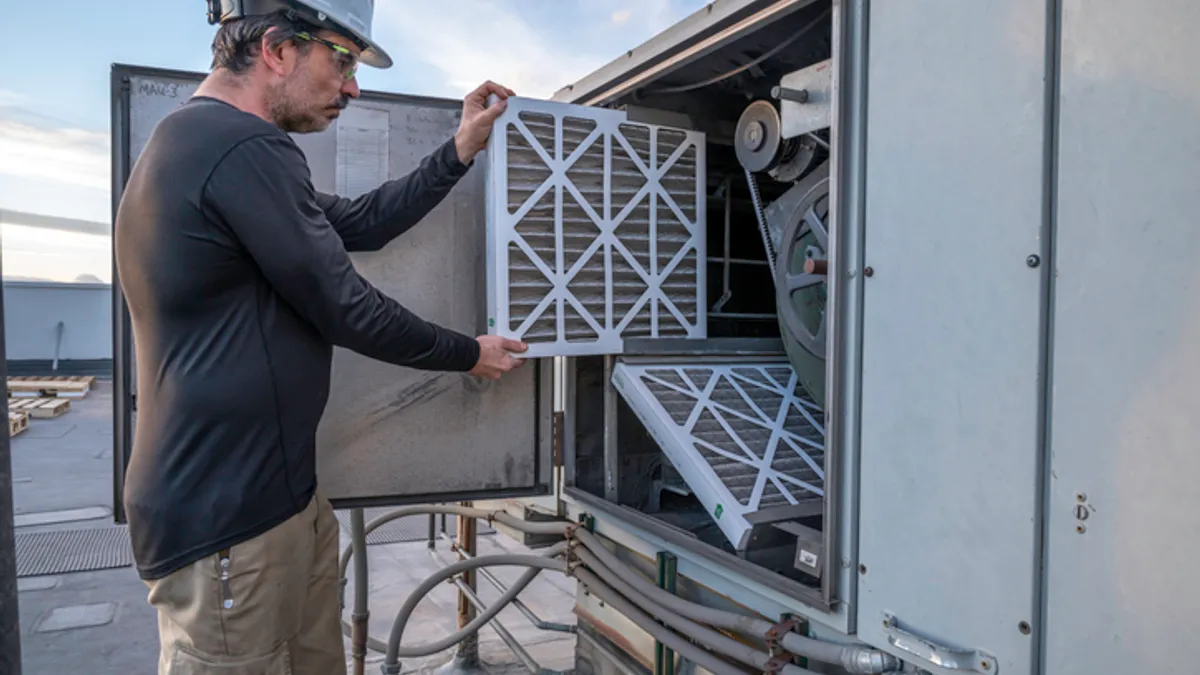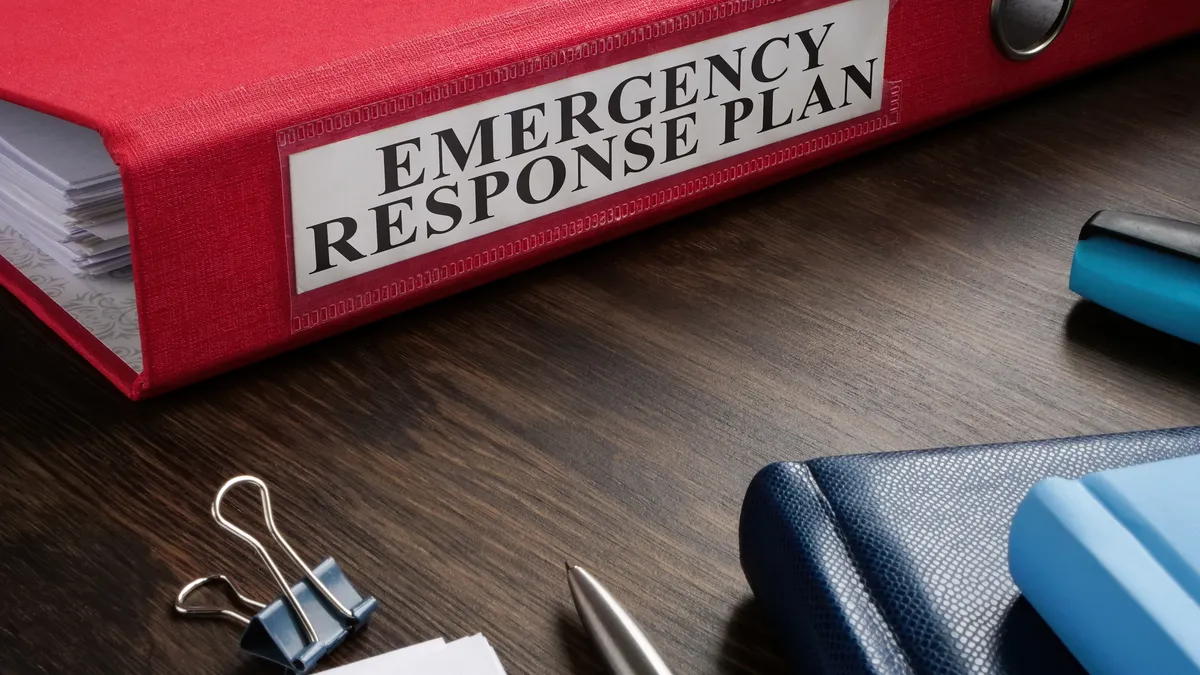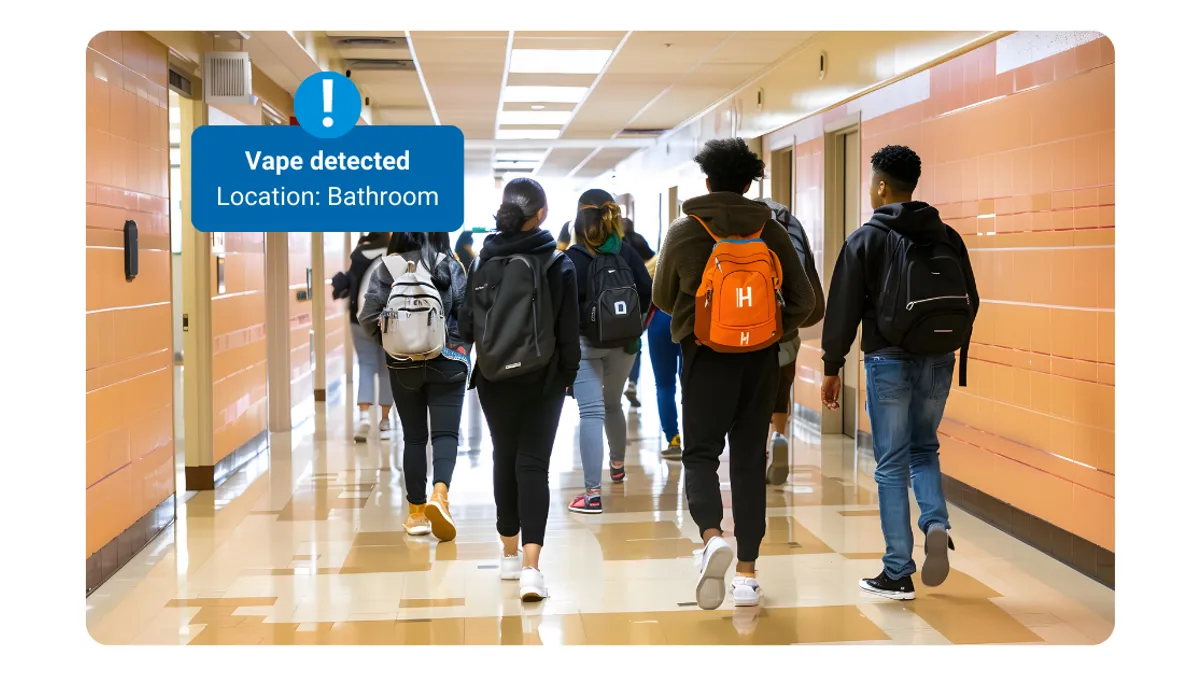If your facility is in an area with known crime and you haven’t taken defensive steps, you could be liable if it’s the site of third-party violence, an attorney says.
“On its face I shouldn’t be liable for the violent act of a third party, because I’m not involved in that,” Pernell Choren, an attorney with Wilson Elser, told Facilities Dive. “I don’t control the shooter. But this is where knowledge is key.”
When a facility is located in an area with known crime, the owner is expected to take appropriate steps to secure the property, Choren said.
“In the last five, 10 years, if there have been stabbings, assault and battery, gun violence, it is foreseeable that there will be violence on your property, so the first question is always foreseeability," he said.
Taking defensive steps means keeping your facility doors locked and having no trespassing signs posted, he said. Fencing and gating are also important. And cameras are good, too.
“It doesn’t need to be an extensive camera network,” he said. “Maybe one at each corner. They’re a deterrent, number one, and number two, they help put the picture together for the fact investigation” after an incident occurs.
Choren has been involved in premises liability cases for more than a dozen years and today he’s representing mostly multifamily property owners who’ve had third-party violence on their property, but much of what applies to multifamily properties also applies to other types of commercial properties, he said.
Keeping your doors locked is important because if you don't do that and someone walks in unimpeded, you can be liable for negligent security, he said.
A recent case on a multifamily property Choren worked on involved an act of domestic violence against one of the residents. The resident left a door unlocked, enabling the person to walk in. Because the door was unlocked, the resident lost a key fact supporting her claim.
“You don’t have an expectation of security if you don’t secure the property yourself,” he said. “You can’t have an expectation of security if you’re leaving doors unlocked.”
That same legal argument can apply if you don’t put up fencing or have no trespassing signs or cameras. “They’re all just factors,“ he said. “None are determinative for the case.”
If you’ve taken the appropriate measures and third-party violence occurs on the property, the owner’s first legal defense if the victim’s estate sues the property owner or management company is to say they were trespassers. But Choren emphasizes that you have to be able to show you’ve taken steps to keep trespassers out.
If you have an outside company provide security, Choren recommends you use the contract with the company to delineate who is indemnifying whom. As part of this, he recommends having the security company conduct an audit and for the property owner to take the steps recommended in the audit. That way, if an incident occurs, the owner can reasonably tender liability to the security company. If the owner doesn’t take the recommended steps, or if an audit is never requested, it’s easier for the security company to tender liability to the owner.
“I call up the security company and say, ‘Hey, we got sued. Pursuant to the contract, I'm tendering the defense to your company. Will you accept?’ They should accept,” he said. “If they don’t, then I can demand it if I get hit with a judgment. I send it over to them and say, ‘You have to indemnify us. This $2 million we just got hit with? You have to pay.’”
The security company can be expected to push back, but the owner is in a good position if they order the audit and do what’s recommended, he said.
Big judgments, like one for $2 million, are not out of the question if the property is located in a state that doesn’t have a cap on non-economic damages, Choren said. The District of Columbia, for example, has no cap, so it’s possible for a jury, if the case goes to trial, to come back with a big judgment.
“Can a plaintiff’s attorney convince a number of jurors the [building owner] should have liability?” he said. “Absolutely, and that’s the risk.”
If the property isn’t in an area with a history of crime, there’s less chance of getting hit on the issue of foreseeability, he said. So, if the property doesn’t have cameras or gating or no trespassing signs, the absence of those is less of an issue if there’s a claim filed against the owner from a victim’s estate.
“If you have a building in a part of town with no violence and all of a sudden there’s a shooting on your property, and you don’t have [extensive] security, you shouldn’t be held liable,” he said. “I would take that case all day, because you have no prior knowledge that more security than zero, or the bare minimum, is necessary because you don’t know this shooting is going to happen. It’s not foreseeable."







